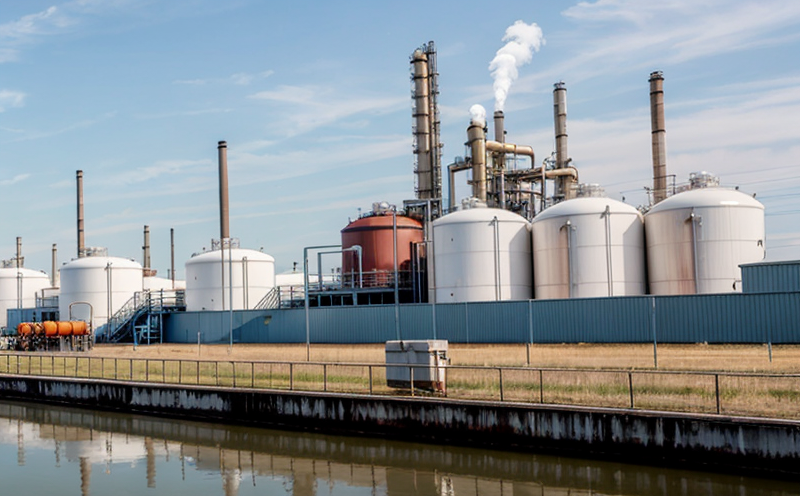UNE EN 14082 Safety Testing of Airborne Pollutants
The UNE EN 14082 standard provides a framework for the safety testing of airborne pollutants, ensuring that industrial processes and operations do not pose risks to human health and the environment. This service is crucial in sectors such as manufacturing, energy production, and chemical processing where air quality can significantly impact public health.
The standard covers various aspects including sampling techniques, analysis methods, and acceptance criteria for airborne pollutants like particulate matter (PM), volatile organic compounds (VOCs), nitrogen oxides (NOx), sulfur dioxide (SO2), and ammonia (NH3). The testing is designed to ensure compliance with regulatory standards set by international bodies such as the World Health Organization (WHO) and national authorities.
Our laboratory adheres strictly to UNE EN 14082 guidelines, offering a comprehensive suite of testing services that cater to the unique needs of industrial clients. We use state-of-the-art instrumentation and employ highly skilled technicians who are experts in air quality analysis. Our services are tailored to meet the specific requirements of our clients, ensuring accurate and reliable test results.
The process begins with a detailed consultation to understand the client's specific needs and objectives. Once this is established, we design a sampling plan that addresses the pollutants of concern. Sampling can be conducted at various points within the industrial facility or in ambient air if required. Specimen preparation involves collecting samples using appropriate devices such as samplers, filters, or sorbent tubes.
Following collection, specimens are analyzed using advanced analytical techniques including gas chromatography-mass spectrometry (GC-MS), Fourier transform infrared spectroscopy (FTIR), and thermal desorption-gas chromatography (TD-GC). These methods ensure precise quantification of the pollutants present. The results are then compared against the acceptance criteria set forth in UNE EN 14082 to determine compliance.
Our laboratory also provides a range of additional services such as trend analysis, which helps identify any changes over time that may indicate potential issues or improvements in air quality control measures. This proactive approach allows clients to make informed decisions regarding their operations and safety protocols.
Benefits
- Ensures compliance with international standards for air quality testing.
- Provides accurate and reliable data on airborne pollutants present in industrial environments.
- Aids in identifying potential health risks to workers and surrounding communities.
- Supports continuous improvement initiatives by offering trend analysis of pollutant levels over time.
Industry Applications
This service finds application across multiple sectors including manufacturing, energy production, chemical processing, and waste management. Industries such as petrochemicals, power generation, and metal refining often require stringent air quality monitoring to protect workers and the environment.
In the manufacturing sector, ensuring that airborne pollutants are within safe limits is critical for maintaining worker safety and complying with regulatory requirements. For energy producers, testing helps in optimizing combustion processes and reducing emissions. In chemical processing facilities, regular monitoring ensures that by-products do not pose risks to personnel or the local ecosystem.
The service also benefits waste management companies who need to verify that their operations meet stringent environmental protection standards. By providing accurate data on pollutant levels, our laboratory supports these industries in maintaining high safety standards and minimizing potential liabilities.
Quality and Reliability Assurance
- We adhere strictly to UNE EN 14082 guidelines throughout the testing process.
- Our technicians are certified in air quality analysis techniques.
- All equipment is regularly calibrated and maintained to ensure accurate results.
- Audit trails are kept for all tests conducted, providing traceability of results.
The UNE EN 14082 standard is designed to provide a robust framework for the safety testing of airborne pollutants. Compliance with this standard ensures that our laboratory meets the highest quality and reliability standards in air quality analysis. Our commitment to accuracy, precision, and consistency is reflected in every aspect of our service.





